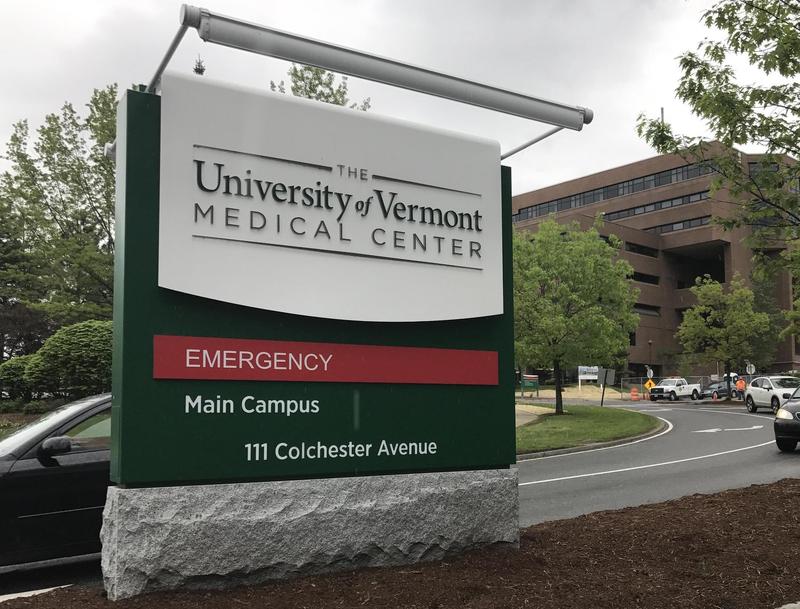OpEd: UVMMC’S Path to a Health Care Monopoly

UVMMC’S PATH TO A HEALTH CARE MONOPOLY
MAR. 15, 2017, 7:03 PM
BY KEITH BRUNNER
Editor’s note: This commentary is by Keith Brunner, a member of the Vermont Workers’ Center and co-coordinator of the Healthcare is a Human Right campaign.
Those of us concerned about Republican attacks on health care should be equally worried about the University of Vermont Medical Center’s growing monopoly over our state’s health care system, and what that entails for patients and providers here in our state.
CEO John Brumsted maneuvered UVMMC into the driver’s seat of health care reform following the former governor’s abandonment of Vermont’s universal health care law, Act 48. The medical center has undergone constant expansion in recent years, absorbing independent practices and rural hospitals, while significantly increasing its profits.
Even more troubling, however, is UVMMC’s growing control over the administration of Vermont’s health care dollars.
Last fall, the former administration secured an agreement with the federal government known as the all payer model, which aims to corral Vermont’s health care providers into regulated monopolies known as accountable care organizations, or ACOs. The ultimate vision of the model is to bring all of Vermont’s health care providers under one roof, known as the Vermont Care Organization.
Currently there are three ACOs negotiating the shape of the future Vermont Care Organization, with UVMMC/Dartmouth-Hitchcock’s joint ACO, OneCare, far and away the most well-financed of the pack. Last month, OneCare signed a contract with the Scott administration that will see it administering care for 30,000 Medicaid recipients over the course of 2017. If successful, this model will expand to include the rest of Vermont’s Medicaid and Medicare populations, along with people insured through their jobs.
This means that our health care dollars, rather than flowing through the public sector in order to be distributed based upon need, will instead be administered by a private, nominally non-profit company — in effect, a privatization of core functions of Vermont’s health care system.
What impact will privatization have upon ensuring universal and equitable access to care in our state? Will UVMMC/OneCare have private decision-making power over how doctors treat their patients? What about whether or not to spend money on community-based care, or improve medical facilities in our state?
It’s a false solution that misses the real problem with our health care system — profiteering by the insurance, hospital and pharmaceutical industries.
Unfortunately, we don’t have to look very far to get a preview of how this might play out.
Right now in Burlington, licensed nursing assistants (LNAs) and other patient care staff are organizing to form a union and improve staffing levels at the hospital. These are our neighbors, overwhelmingly women, who form the underpaid backbone of caregiving in Vermont’s hospitals and nursing homes. But despite a tripling of hospital profits in recent years, UVM Medical Center’s senior management is refusing to pay patient care staff livable wages and blocking them from voting on the union.
If CEO John Brumsted, who makes $1.6 million a year, and his colleagues — many of whom rank in Vermont’s top 1 percent of income earners — are refusing to allow low-wage workers to have a voice on the job, what does that tell us about how they would manage health care programs for tens of thousands of people in Vermont?
In another troubling development, last month UVMMC’s Todd Moore testified to the Legislature in opposition to a bill that would require ACOs to abide by Vermont’s open meeting law. While there are reportedly efforts to craft a “compromise bill,” the writing on the wall is clear: Privatization will result in the erosion of mechanisms for the public to hold health care decision makers accountable.
ACO proponents claim that the model will cut costs by eliminating waste spending in the system, achieved in part by a transition from a fee-for-service payment system to one based on per-capita payments.
Of course, we’d all be better off if providers are paid to promote quality of care instead of prescribing high-cost treatments. But this new arrangement does nothing to directly address the crises of access and cost that so many people in Vermont are struggling with. Instead, its aim appears to be to reduce insurance payers’ costs, consolidate power for UVM Medical Center, and cut public health care budgets.
It’s a false solution that misses the real problem with our health care system — profiteering by the insurance, hospital and pharmaceutical industries.
The real solutions are simple — implementing equitable financing for Vermont’s universal health care law, Act 48, and ensuring that everyone working at our medical centers receives a living wage and a comprehensive set of worker protections, including the right to organize.
UVM Medical Center’s board of trustees are meeting Thursday, March 16, in Burlington, and community members will be there calling on them to ensure a free and fair union election process for patient care staff. I hope to see you there.
